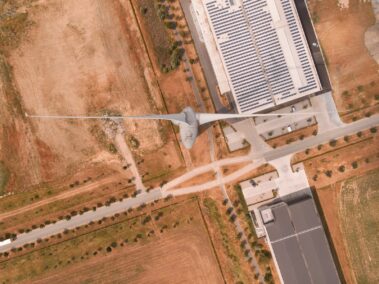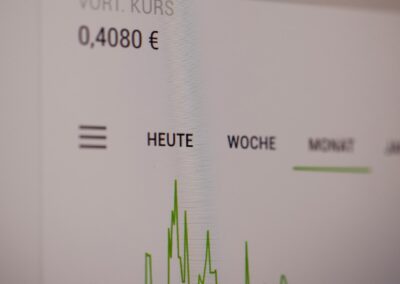Driving Efficiency Through AI
Artificial Intelligence (AI) is revolutionizing the energy management landscape, particularly in regions like Saudi Arabia and the UAE, where optimizing resource utilization is crucial. In Riyadh, for example, AI algorithms are being employed to analyze energy consumption patterns and forecast demand, allowing utilities to adjust supply in real-time and minimize wastage. Similarly, in Dubai, AI-powered smart grids are enhancing the efficiency of electricity distribution, reducing transmission losses, and ensuring a more reliable power supply for businesses and households. By harnessing the power of AI, energy management systems can achieve unprecedented levels of efficiency and sustainability, ultimately leading to cost savings and environmental benefits.
Enhancing Sustainability and Resilience
In both Saudi Arabia and the UAE, the integration of AI in energy management systems is driving efforts towards sustainability and resilience. AI-driven predictive analytics enable proactive maintenance of energy infrastructure, reducing downtime and enhancing system reliability. Moreover, AI algorithms optimize renewable energy integration by forecasting solar and wind power generation, enabling better grid management and maximizing the utilization of clean energy sources. As a result, both countries are making significant strides towards their renewable energy targets, reducing dependence on fossil fuels, and mitigating the impact of climate change.
Empowering Decision-Making
One of the key advantages of integrating AI in energy management systems is its ability to empower decision-making processes. In Saudi Arabia, energy companies leverage AI-powered data analytics to identify inefficiencies in production processes, optimize resource allocation, and streamline operations. Similarly, in the UAE, AI-driven energy management platforms provide real-time insights into energy consumption patterns, enabling businesses to make informed decisions about energy usage and cost-saving opportunities. By leveraging AI, organizations can gain a deeper understanding of their energy needs, identify areas for improvement, and implement strategies to optimize resource utilization, ultimately driving greater efficiency and competitiveness in the market.
Optimizing Operations and Maintenance
AI-based energy management systems are transforming the way utilities and industries operate and maintain their infrastructure. In Saudi Arabia, where energy demand continues to rise, AI algorithms are being utilized to optimize the scheduling of maintenance activities, reducing downtime and increasing the lifespan of critical assets. By analyzing vast amounts of data collected from sensors and monitoring devices, AI can detect anomalies and predict equipment failures before they occur, enabling proactive maintenance strategies that minimize disruptions and enhance reliability. Similarly, in the UAE, AI-powered predictive maintenance solutions are helping energy companies improve the efficiency of their operations, reduce maintenance costs, and ensure uninterrupted energy supply to meet the growing demand.
Driving Energy Efficiency
Energy efficiency is a top priority for both Saudi Arabia and the UAE as they seek to reduce their carbon footprint and achieve their sustainability goals. AI technologies play a pivotal role in driving energy efficiency by optimizing energy consumption patterns and identifying opportunities for improvement. In Riyadh, for instance, AI-powered energy management systems analyze data from smart meters and building automation systems to identify energy-saving opportunities, such as adjusting HVAC settings based on occupancy patterns or optimizing lighting schedules. Similarly, in Dubai, AI algorithms are used to optimize the operation of district cooling systems, reducing energy consumption and lowering carbon emissions. By leveraging AI to optimize energy usage, both countries are not only reducing costs but also contributing to environmental conservation efforts.
Fostering Innovation and Collaboration
The integration of AI in energy management is fostering innovation and collaboration among stakeholders across the energy ecosystem. In Saudi Arabia, government entities, research institutions, and private sector companies are collaborating to develop AI-powered solutions that address the country’s energy challenges, such as optimizing oil and gas production, enhancing energy efficiency in industrial processes, and deploying smart grid technologies. Similarly, in the UAE, initiatives like the Dubai Clean Energy Strategy 2050 are driving investments in AI and other emerging technologies to accelerate the transition to a clean and sustainable energy future. By fostering a culture of innovation and collaboration, both countries are positioning themselves as leaders in the global energy transition, driving economic growth, and enhancing their competitiveness on the world stage.
#AIinEnergy #ResourceManagement #SustainableEnergy #EnergyEfficiency #RenewableEnergy #SmartGrids #SaudiArabia #UAE #Riyadh #Dubai #ArtificialIntelligence #Sustainability #ClimateAction #DecisionMaking #DataAnalytics























